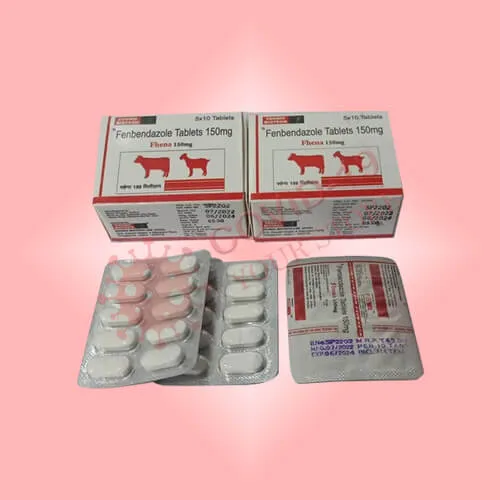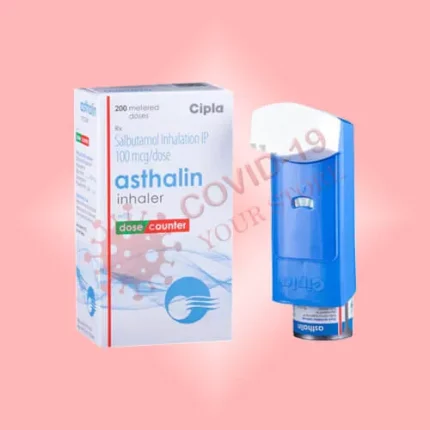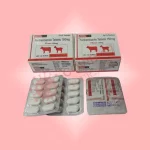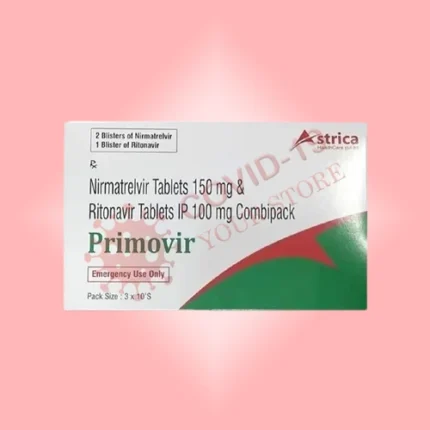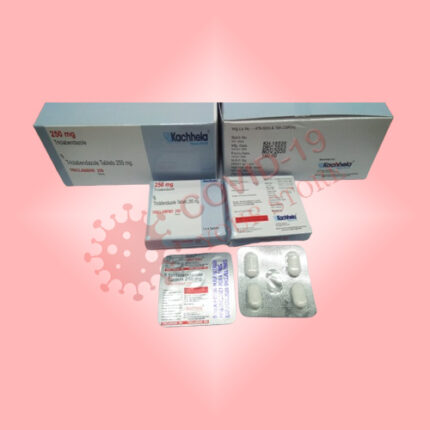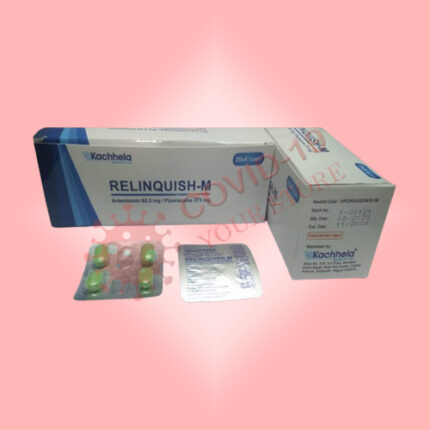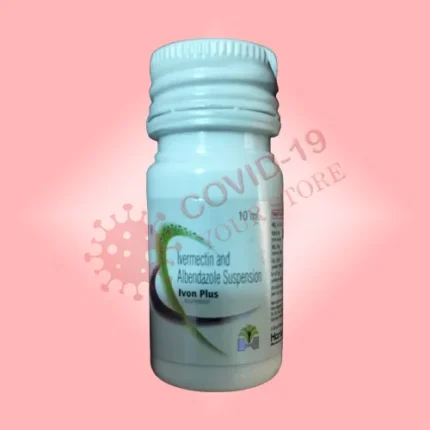What is Fenbendazole 150 mg?
Fenbendazole 150 mg is an anthelmintic medication primarily used to treat parasitic infections caused by various types of worms, including roundworms, hookworms, and tapeworms. It is commonly used in veterinary medicine to treat infections in animals such as dogs, cats, and livestock, but it has also gained attention for its potential use in humans, particularly for treating certain parasitic infections.
Fenbendazole belongs to a class of drugs called benzimidazoles, which work by disrupting the metabolism of the parasites. This prevents them from absorbing essential nutrients, ultimately leading to their death. It is typically available in oral form, such as tablets or powder, and is generally considered to be effective in treating a wide range of parasitic infections.
How Does Fenbendazole Work?
Fenbendazole works by inhibiting the parasite’s ability to absorb glucose, which is essential for its survival. It binds to tubulin, a protein that forms the microtubules in the parasite’s cells. By disrupting microtubule formation, Fenbendazole interferes with the parasite’s ability to divide and grow. This leads to the starvation and eventual death of the parasite.
Fenbendazole is highly effective against various intestinal parasites and has been shown to treat infections in both humans and animals. While it is primarily used in veterinary medicine, research into its potential human applications is ongoing.
Benefits of Fenbendazole 150 mg
- Effective Against a Wide Range of Parasites: Fenbendazole is effective against several types of intestinal parasites, including roundworms, hookworms, whipworms, and tapeworms. This makes it a versatile treatment for parasitic infections.
- Broad-Spectrum Action: As a broad-spectrum anthelmintic, Fenbendazole targets multiple types of parasitic infections, which makes it useful for individuals who have been diagnosed with mixed infections.
- Minimal Side Effects: When taken as prescribed, Fenbendazole generally has a low risk of causing serious side effects. It is considered a safe and effective treatment for parasitic infections in animals, and it is also being explored for use in humans.
- Affordable: Fenbendazole is often available at a lower cost compared to other medications used to treat parasitic infections, making it an affordable option for many patients.
- Well-Tolerated: Fenbendazole is generally well-tolerated by both humans and animals, with few reports of adverse reactions when used correctly.
How to Take Fenbendazole 150 mg
The proper dosage of Fenbendazole 150 mg will depend on the specific parasitic infection being treated, the patient’s age, and their overall health. It is essential to follow the instructions provided by your healthcare provider or veterinarian to ensure safe and effective use.
- Dosage: For humans, the dosage of Fenbendazole may vary, but a typical regimen involves taking 150 mg once daily for a period of 3 to 5 days, depending on the type and severity of the infection. For animals, the dosage will vary based on their weight and the type of infection.
- Administration: Fenbendazole is usually taken orally, either in the form of a tablet or powder. It should be taken with food to improve absorption. If you are using the powder form, mix it with a small amount of food or water to make it easier to consume.
- Follow the Prescription: Always follow your healthcare provider’s instructions carefully. Do not take more or less than the prescribed dose, and finish the entire course of treatment, even if you begin to feel better before completing the regimen.
- Repeat Dosage: In some cases, a second round of treatment may be required to completely eradicate the parasites. Your healthcare provider will determine if additional doses are necessary.
Who Makes Fenbendazole 150 mg?
Fenbendazole 150 mg is manufactured by several pharmaceutical companies, primarily for veterinary use. Panacur is a well-known brand that produces Fenbendazole for animals, but it is also available in generic forms. For human use, Fenbendazole may be available under various brand names or as an unbranded generic medication.
The availability of Fenbendazole for human use varies depending on the country and regulatory approval. While it is commonly used in animals, its use in humans is still under investigation, and it should only be used for human treatment under the guidance of a healthcare provider.
Is Fenbendazole 150 mg Safe for Humans?
Fenbendazole is generally considered safe for animals when used according to the prescribed guidelines. Its safety for humans, however, is still being studied, and it should only be used in humans under the supervision of a healthcare provider. Some studies suggest that Fenbendazole may have potential benefits for treating parasitic infections in humans, but more research is needed to fully understand its safety and efficacy.
Before using Fenbendazole for any reason, it is important to consult with your doctor, especially if you have:
- Liver or kidney problems: Fenbendazole is metabolized in the liver and excreted through the kidneys, so individuals with liver or kidney issues may need dosage adjustments or additional monitoring.
- Pregnancy: The safety of Fenbendazole during pregnancy has not been established, so it should only be used if absolutely necessary and prescribed by a doctor.
- Allergic reactions: If you have a known allergy to Fenbendazole or any of its ingredients, you should avoid using this medication.
Side Effects of Fenbendazole 150 mg
While Fenbendazole is generally well-tolerated, it may cause side effects in some individuals. Common side effects include:
- Nausea
- Vomiting
- Abdominal discomfort or pain
- Diarrhea
- Headache
- Dizziness
In rare cases, more serious side effects may occur, such as:
- Liver toxicity: Symptoms of liver problems include yellowing of the skin or eyes, dark urine, or severe abdominal pain.
- Allergic reactions: Severe allergic reactions can include rash, itching, swelling, or difficulty breathing.
If you experience any of these serious side effects, stop using Fenbendazole immediately and seek medical attention.
Disclaimer
This content is for informational purposes only and should not be considered medical advice. Always consult with your healthcare provider before starting any new medication, including Fenbendazole. The information provided here is not a substitute for professional medical guidance, diagnosis, or treatment. Use Fenbendazole only under the supervision of a healthcare provider to ensure safety and effectiveness.


